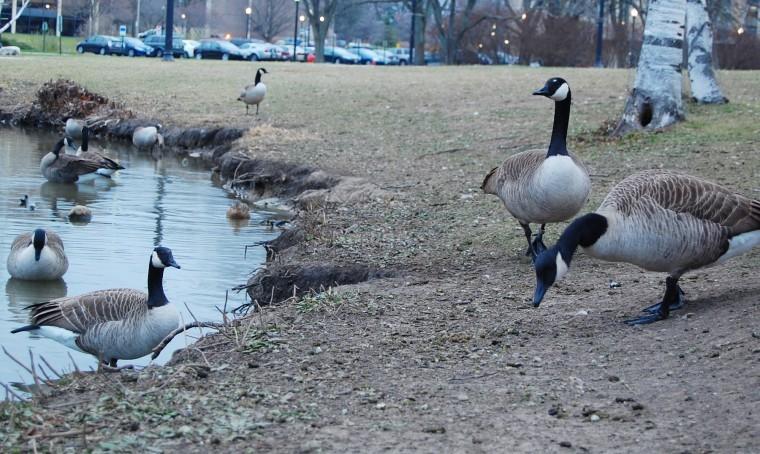Geese are not having a negative effect on student health
Geese flock to the lagoon Monday afternoon. Flocks of geese have also been seen by the pond near Grant Towers. These geese have been causing sanitary issues on campus.
November 27, 2012
The Canada geese on campus do not have a negative effect on student’s health.
According to the Humane Society website, scientific studies do not show goose droppings pose any special threat to people’s health. However, geese will defend their nests and goslings, and people who get too close may provoke a defensive response, according to the Humane Society.
Ashley Flint, director of Fox Valley Wildlife Center, said the geese do not carry any diseases humans can catch. Geese can carry parasites like Coccidia, but she said the only way humans can get those parasites is by ingesting goose feces.
“It is way more likely for pets such as dogs or cats to ingest those parasites,” Flint said.
Desmond Green, Kishwaukee College sophomore music performance major, said he thinks geese are the scariest birds in the world.
“Whenever I am around the Grant or Stevenson area, I always find myself taking a longer route to where I am headed because I tried to avoid them as much as possible,” Green said.
According to the U.S. Fish and Wildlife Service, urban-suburban environments give ideal conditions for the Canada geese. Lawns give high-protein food for the geese and agricultural areas provide grain-based food. Many ponds provide ample water supply for the geese, and suppressed predator populations in urban-suburban areas allow goose populations to grow, according to the U.S. Fish and Wildlife Service.
Ashton Spegal, sophomore political science major, said she witnessed a goose attacking a person.
“I was walking back from class by the field house and this guy was riding his bike and all of a sudden the goose that was there knocked him off of his bike,” Spegal said.
According to the Humane Society, the geese do not hatch with the knowledge of flying and migrating. Canada geese will not go away unless disturbed by humans, according to the Humane Society. The killing of geese is a common solution to getting rid of them but this allows new flocks of geese to move in, according to the Humane Society.







